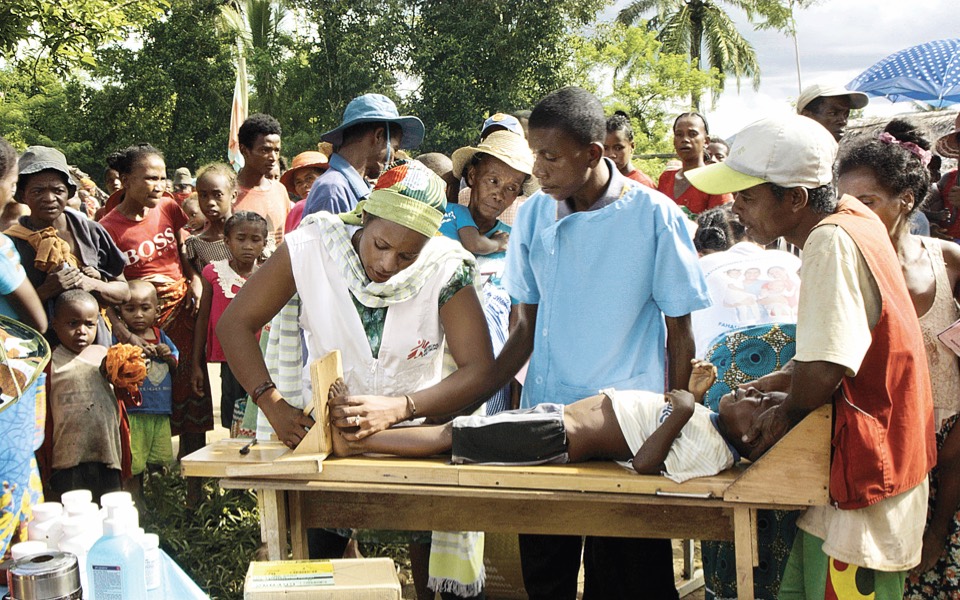Greek doc sounds alarm from the front line of the climate crisis

“For all our family members that might not hear this announcement and the measures to be taken, please inform them by giving them a phone call. We must move to a safer place to protect ourselves from the potential rising waters during this cyclone.”
Sound familiar? Perhaps like a different version of the 112 emergency message that has sounded on phones all over Greece these past couple of months?
When documentary filmmaker Natasha Blatsiou, director of photography Nikos Ziogas and the production manager representing the Medecins Sans Frontieres (MSF, or Doctors Without Borders) NGO, Mitsi Persani, landed in the capital of Madagascar, Antananarivo, last May, Greeks tended to have a rather vague view of what climate change means: melting ice, seals sunning themselves, heatwaves in London, wildfires in Siberia… Regardless of what picture each person had in mind, it was something that was happening thousands of kilometers away and would probably not impact us directly, but concern generations to come.
It took just two months, a mega-fire in Evros and a historic flood in Thessaly to realize that the distance separating Greece from Madagascar is not that big after al
This vague picture, however, came into sharp focus this summer so that the warning sounded by the local town crier on the southeastern coast of that beautiful island nation vindicated the people at the Greek branch of MSF who wanted to make a documentary about Madagascar’s exposure to climate change, a documentary that will be screened on Thursday in the competition section for Greek shorts at the Premiere Nights Athens International Film Festival.
It took just two months, a mega-fire in Evros and a historic flood in Thessaly to realize that the distance separating Greece from Madagascar is not that big after all – at least not with regard to the degree of vulnerability to climate change.
For some years now, the once-lush island off the eastern coast of Africa has been on the front line of the global climate crisis. Cyclone Freddy last February was the sixth major storm to strike Madagascar in just 14 months, and it left massive devastation in its wake. The documentary looks at the impact of successive blows from extreme weather on the Malagasy people. Their survival depends on their crops, which are destroyed with every storm that passes, as is their ability to grow more food. Without food, malnutrition, especially among children, is exacerbating and creating new intense public health demands.

Doctors Without Borders has responded to the effects on public health from the climate crisis with an increasing number of initiatives aimed at providing support to populations that are more exposed to the chain of impacts from extreme weather, like food shortages, malnutrition and epidemics.
“It is as if the sun has come closer,” an elderly farmer who experienced the first cyclone to hit Madagascar, in 1969, tells the documentary filmmaker in a poignant description of what climate change means.
In her dual role as director and producer, Blatsiou chose to highlight the dramatic effects on the local population by focusing her lens on the bright yet hardened Titi, a Nigerien nurse who spent a year in Madagascar running MSF’s program for malnourished children. “We didn’t get much done today,” she says in one scene, where we see her examining children into the night with the help of a headlamp.
“The situation in the countries where Titi works doesn’t change dramatically. She’s not saving the world, but she continues saving lives. Like Sisyphus, she wakes up every morning having to put in a titanic effort,” says Blatsiou. And this is the message of this wonderful documentary: that every life counts.
“Titi: In the Cyclone’s Wake” will be screened on Thursday at 5 p.m. at the Danaos 1 Cinema. For reservations and more details about the Premiere Nights Athens International Film Festival, visit aiff.gr.





